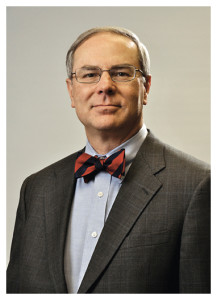The right mindset for financial choices
Posted on November 30, 2016 by bob in MoneyWise
Over my 36-year career in financial services, I have learned that one’s mindset affects the quality of one’s decisions. Having observed at close range
hundreds of folks dealing with financial choices, I have concluded that a realistic approach blended with a splash of hope is the best approach to take. Here are six other mindsets I have encountered that negatively affect people.
The Eternal Optimist believes, regardless of evidence, that things will turn out great. Therefore, this overconfident person assumes imprudent risks.

Even after things turn out badly on repeated occasions, the Eternal Optimist does not adjust. He keeps taking chances on long-shots that do not pan out.
The Perpetual Pessimist is convinced that things generally will turn out badly, no matter what choices she makes. The result of a permanently negative mindset can be a failure to plan or think things through because, after all, what is the point if everything is going to turn out badly anyway?
The Myopic Extrapolator believes that current trends will continue indefinitely. An example is the contractor who told me in the early 1980s that the prime interest rate would never be below 10% as long as either of us was alive. Clearly, he was wrong. Economic and market factors pass through cycles. Current realities may persist for quite a while, but they can and often do change in time, sometimes quite quickly and unexpectedly. Making decisions based on the unexamined belief that existing conditions will persist forever can lead to unpleasant surprises. Do you recall the dot-com bust of the late 1990s?
The Gullible Innovator believes that every new idea, product, or technology she hears about will revolutionize her life and the world around her. Therefore, the Gullible Innovator embraces new ideas quickly and with little examination, perhaps out of the fear of “falling behind.” This approach leads to a lack of stability and a failure to reap the benefits of genuinely beneficial ideas from the past. Not every new thing is a better thing than the old thing it hopes to replace.
The Impulsive Generalizer likes rules of thumb and easy answers. He saves time and effort by basing decisions on a single piece of data. Years ago I suggested to a friend the possibility of using mutual funds as a wealth accumulation vehicle. He asked someone nearby what he knew about mutual funds. This person responded that he once had owned some but sold them after their value dropped. My friend then confidently announced that he would never buy mutual funds because, based on the other man’s single experience, they clearly did not work. The Impulsive Generalizer is known for drawing the wrong conclusions from limited data and an unwillingness to inquire more deeply into cause and effect relationships.
The Indecisive Self-Doubter has difficulty making and sticking to a decision. She is slow to decide and starts doubting her choice shortly after making it. A series of course reversals may follow. This person has special difficulty coping with ever-changing investment prices and is easily swayed by daily reports in the financial and popular press about the direction of the economy and markets.
The Hopeful Realist, on the other hand, makes decisions based on a careful examination of facts. Typically his/her choices:
— Are well informed—based on sufficient, pertinent data, not assumptions or hearsay;
— Are more rational than emotional;
— Weigh the magnitude and probability of the risks and rewards of various options;
— Are timely, neither hurried nor delayed;
— Consider both the short and long-range implications of the choice.
If you are not already, I hope that you will henceforth purpose to be a Hopeful Realist.
P.S. After almost seven years and more than seventy columns, I have decided to lay aside my pen as a monthly columnist for Prime. I have thoroughly enjoyed sharing ideas and insights with Prime’s readers and especially appreciate the encouraging feedback. I extend my warm thanks to the Publisher and Editor for the privilege of our long collaboration.

Alan Wallace
Alan Wallace, CFA, ChFC, CLU, is a Senior Private Wealth Advisor for Ronald Blue & Co.’s Montgomery office, www.ronblue.com/location-al. He can be reached at 334-270-5960, or by e-mail at alan.wallace@ronblue.com. | 4962622-09-16









